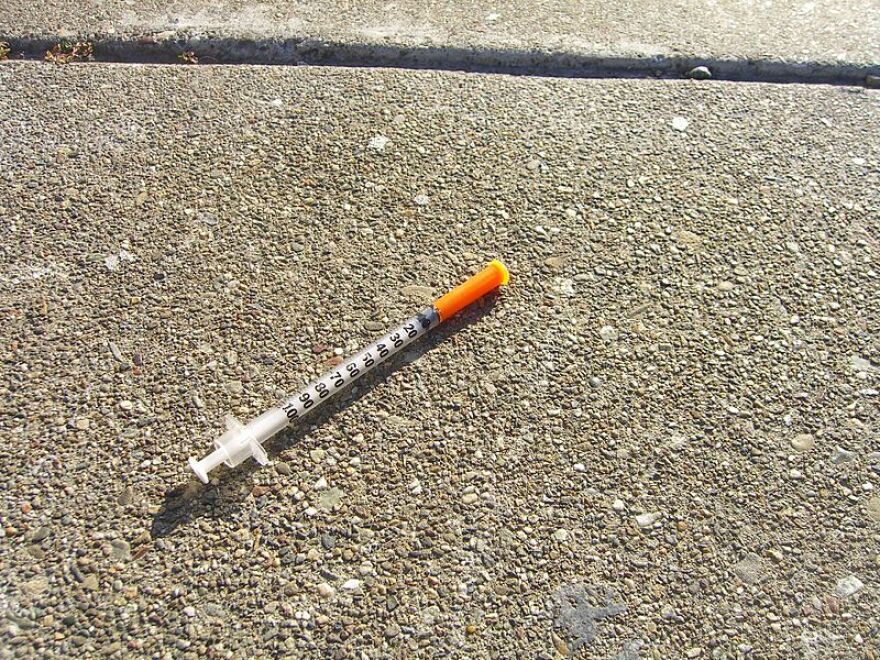The Lexington-Fayette Urban County Council added a countywide needle exchange program and police body camera program to its docket Tuesday.
The needle exchange measure comes out of Senate Bill 192, a statewide law that prescribes several ways to deal with the Commonwealth’s heroin epidemic. One of these is the ability to run local needle exchanges, but it would require council approval. Fayette County Health Commissioner Dr. Rice Leach said it would allow addicts to turn in used needles, each with an identifying marker, for clean ones, each costing about $0.10. He says this is much cheaper than treatment for diseases spread by dirty needles.
“This stuff is expensive. Hepatitis B, $65,000 lifetime cost. Hepatitis C, $90-100,000. HIV, it says $285,000, but I’ve been told it’s anywhere from $400-800,000 to treat an HIV patient for a lifetime,” he said.
State Senator Reggie Thomas, a prime sponsor of SB 192, also testified to the effectiveness of needle exchanges. He said along with other treatment programs, it would help curb the abuse of heroin.
“We’ve seen it work in other communities across this nation, and we need to do all that we can to stop the heroin trade here in Lexington," he said.
The council voted unanimously to add the program to the docket. It will have a first reading on July 2nd, and a final vote on July 7th. If approved, Leach aims to get the needle exchange operational by Labor Day.
***********
The body camera allocation was originally part of the city’s 2015 budget, but was removed due to lack of reliable information on costs, particularly for long term storage of video. However, the city noted that talks with a new vendor have shown costs to not be as high as predicted. Police Chief Mark Barnard testified with local NAACP president William Saunders, saying they are in agreement on the future use of the devices.
“His vision is to have body cameras, our vision is to have cameras, we know that’s the way policing is going” he said.
Saunders added that regardless of the cost, using body cameras would improve public trust in law enforcement.
“$600,000 is not even the issue today. The issue is we want to restore the trust back into our communities, and I think that is one of the first steps, that we do that," he said.
The council also added this measure to the docket, and it will go before them in the coming weeks. A final vote will likely to be taken in early July.



